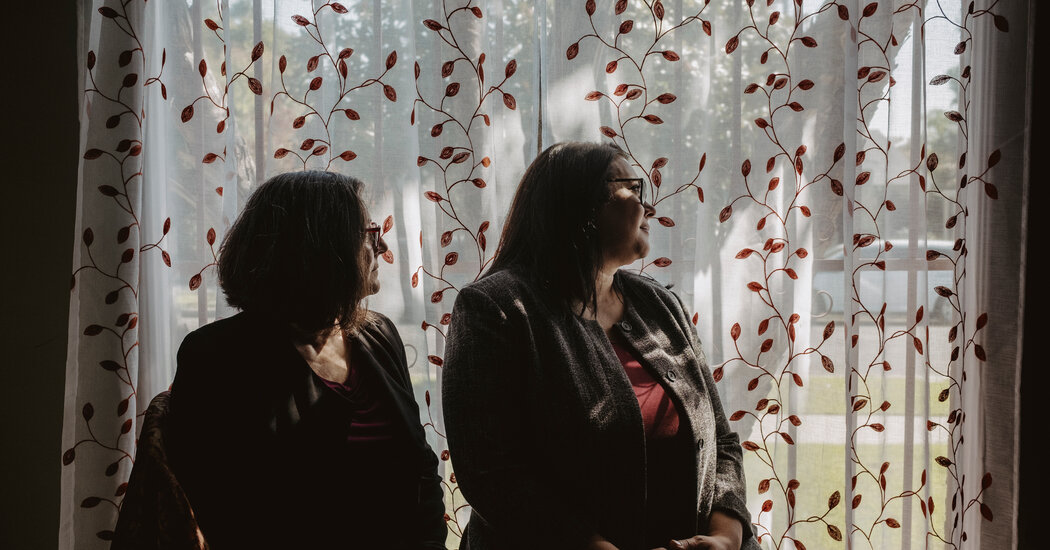The Los Angeles Times reported on Oct. 15, 2018. A Los Angeles Jewish Farmer Meets Israel and Hamas in NewGround, a Los Angeles Non-Profiter Fellowship Program
Aziza Hasan, a devout Muslim, looked out at the group gathered around her, spoke of the loved ones who had died in Israel and Gaza and began reciting the first chapter of the Quran.
She said that God’s strength was on her right side. “Behind me, God’s healer, Raphael. Above my head is God’s divine presence.”
On this late afternoon of Oct. 15, the war between Israel and Hamas was well underway as Ms. Hasan and Ms. Hodos sat on parched grass at a bustling park six miles west of downtown Los Angeles. A group of Jews and Muslims stand around each other.
Everyone on hand was part of NewGround, a nonprofit fellowship program that has helped more than 500 Los Angeles Muslims and Jews learn to listen, disagree, empathize with one another — and become friends.
In rural Lone Rock, Wis., where there had been another long workday on Thursday, the dairy farmer said the president’s appeal for military aid was going to be a hard sell.
Mr. Schmidt owns the largest dairy farm in Richland County, a swing district that had voted for the winning presidential candidate in every election since 1980, until 2020, when voters there went for former President Trump’s re-election.
“I mean, money comes hard here,” Mr. Schmidt said. “It’s been a relatively tough year of farming for us. I think as a country, we do support Israel, but I couldn’t believe we can do that much.”
In suburban Milwaukee, however, the questions posed by the violence in the Middle East and Ukraine were less economic than moral for Janet Lucas. The terrorist attacks by Hamas against Israelis, in particular, were triggering for her, she said.
“I understand that there has been a fight between the two for years and years,” said Ms. Lucas, 58. She said the way that it was handled broke her heart. “It took me back to 9/11 — the same feeling, the same fear of, you know, is it going to happen to us, or who’s next?”
On Friday she went to Holy Hill, a basilica on a forested hillside, a country drive away from her community, Brookfield, to take in the fall colors with her son, Michael, 25, who was in town from Tampa, Fla. They said, that they felt conflicted about the president calling for his support of Israel. They could not condone terrorist attacks, they said, but sympathized with Palestinians and what they see as the long discrimination they have endured.
Janet Lucas said that she can see both sides of it if she sits in the middle. “And then I also think, is there another way, could the United States or any other country get involved to help them to come to some form of peace?”
The Israeli Censorship of Hamas: The Last Chance for Israel to Reconstruct Peace in the Era of the Sukkot War
Awad Darawshe, shot in the abdomen, bled to death under the stage at the trance music festival that Hamas gunmen transformed into a killing field. A Palestinian Israeli paramedic, he died in a desperate attempt to save the lives of Jews at the Tribe of Nova peace-and-love gathering that marked the Jewish holiday of Sukkot.
That state of drift, in which peace had become a forgotten or even risible word, now feels untenable. The Israeli cultivation of Hamas, intended to ensure that Palestinians remained split between the more moderate Palestinian Authority in the West Bank and the rulers of Gaza, so making Palestinian statehood impossible, is a policy in shreds. The notion that the Palestinians would drift passively off into the ether as Israel normalized relations with Arab states like Bahrain or Morocco looks more misplaced than ever.
The calls for a war like no other to root out Hamas “once and for all,” a consensus in Israel’s national unity government and much of Israeli society, will blunt their voices for now. The majority of the peacemakers are against a devastating invasion of Gaza.
But the Hamas attack has shattered Prime Minister Benjamin Netanyahu’s conviction that the conflict — insoluble in his view — could be managed by “mowing the grass,” in the dismissive Israeli expression for periodic weeding out of Palestinian militancy.
